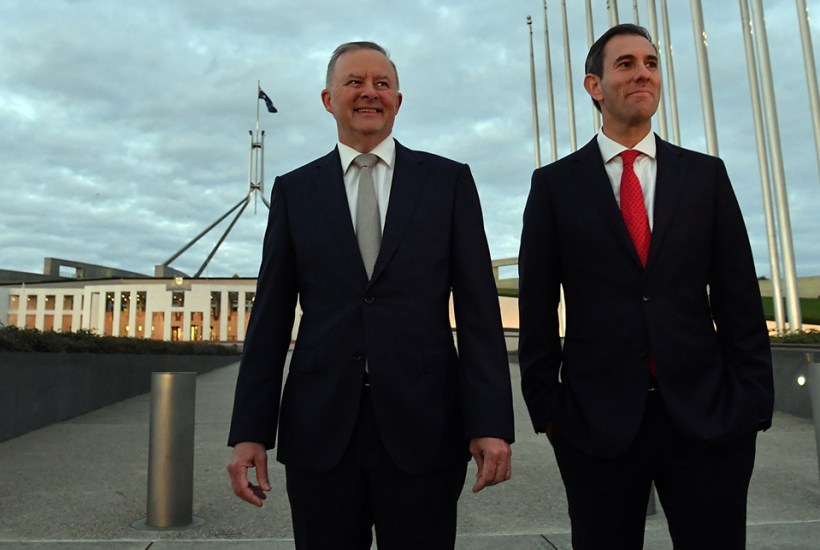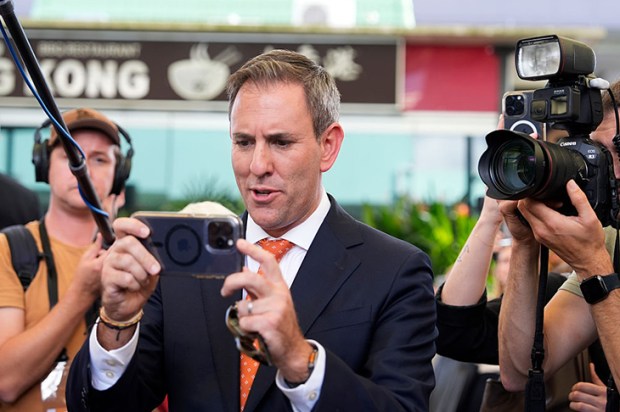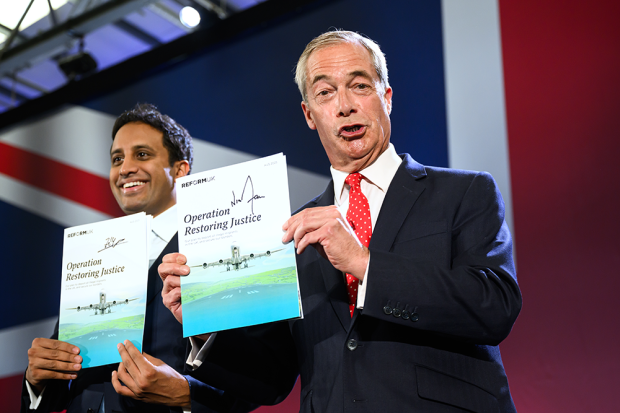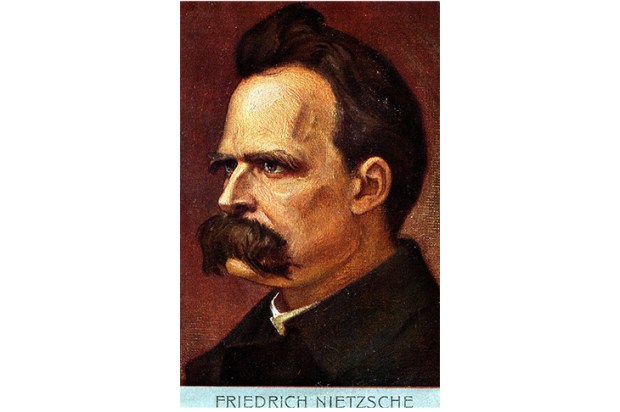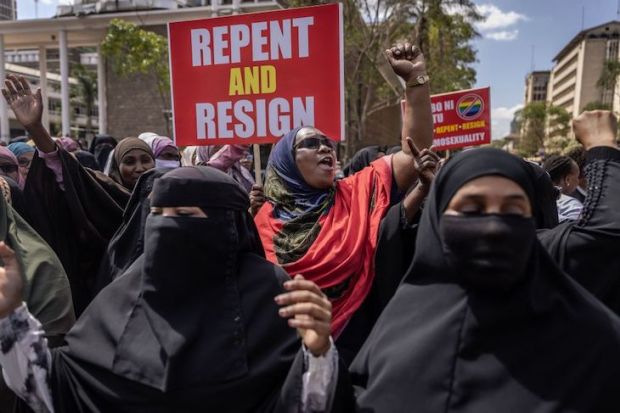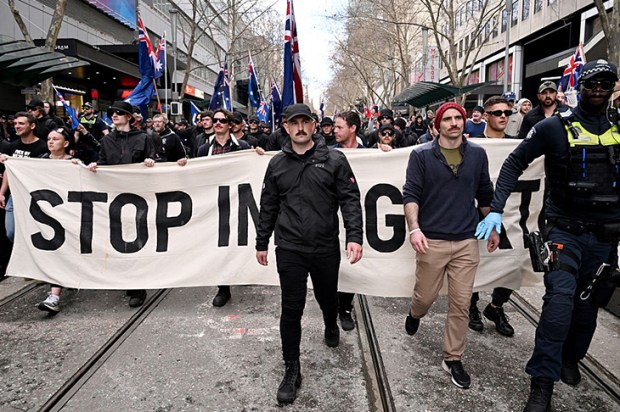I’m not sure too many Speccie readers are counting the number of sleeps before the Jobs and Skills Summit to be held in Canberra in September. But it’s an important date in Labor’s calendar because the pre-cooked communique and recommendations will be used as ongoing cover for actions the government intended to take anyway. By seeking the endorsement of the likely suspects, particularly the ‘business’ community, the Albanese government will claim it has consulted widely, listened to different ideas and reached a ‘consensus’ on important issues. Mind you, anyone who dares to make a dissenting point will be quickly shot down. Take this gushing prediction from Troy Bramston in the Australian:
Anthony Albanese and Jim Chalmers will take immediate action on ‘consensus’ agreements reached between unions and employers at September’s Jobs and Skills Summit to fast-track policy changes to lift productivity, boost wages, improve job security and address skills shortages.The Treasurer hoped the 100-plus summit participants could work co-operatively and with an open mind to achieve consensus on some of the ways forward on the critical policy challenges facing the nation.
(Gosh, does that sound like a government media release to you?). According to Labor’s blurb, the Summit will cover:
keeping unemployment low, boosting productivity and raising incomes; delivering secure, well-paid jobs and strong, sustainable wages growth; expanding employment opportunities for all Australians; addressing skill shortages and getting our skills mix right in the long term; improving migration settings; maximising jobs and opportunities from tackling climate change, the digital economy, the care economy and the Future Made in Australia; and ensuring women have equal opportunities and equal pay.
Participants may also have to pledge their belief in Santa Claus, the Tooth Fairy and Karl Marx.
The composition of participants has been pre-determined – 30 per cent unions/employees (read this as favourite union officials when unions account for less than 10 per cent of the private sector workforce); 30 per cent business types (again, only favourite, trusted ones); 30 per cent ‘experts’ (we all know what expert means in this context) and 10 per cent from states and territories (expect tears from those excluded).
One of the outcomes will be an Employment White Paper prepared by Treasury ‘which will help shape the future of Australia’s labour market’. This will test Treasury to produce a measured, evidence-based report that doesn’t simply take up the government’s wish list. (There are plenty of reasons to think the Treasury will fail. Filled to the gills with Keynesians – indeed believers in Modern Monetary Theory – Treasury has demonstrated over several years that its officials are naïve, at best, and incompetent, at worst. Its forecasts, even near term, have been woeful. It must also take a lot of blame for the mismanagement of JobKeeper and its wildly excessive cost of at least $25 billion.)
Two important points to note. First, summits are so last season. Actually, so last several decades. When Bob Hawke held his summits – there were several – the Australian economy was a very different beast. The dollar had only just been floated, capital controls lifted, deregulation of the financial system had just started, and dismantling industry protection had only just commenced.
The economy remained extremely fragile with far fewer automatic adjustment mechanisms in place than now. In particular, the scope for the then centralised wage system to deliver unsustainable wage increases and feed a wage-price spiral was considerable. Hawke needed to convince his union buddies – and more than half the workforce belonged to trade unions – to accept lower real wages in exchange for gains in what was called the ‘social wage’ (government-provided benefits). (Mind you, the social wage in the late 80s looks positively miserly compared with today’s suite of benefits available to a vast swath of the population.)
The second point to note is wishful thinking is not the same as achieving. Despite the evidence that casual work as a proportion of total employment has not shifted significantly in over two decades, Labor has a thing about jobs that are not called permanent, partly because casual workers are less likely to join unions but also due to a belief in some fanciful nirvana in which every worker is permanent (until sacked) and well-paid.
Sure, governments can regulate away temporary jobs – many socialist European countries do – but the net effect is to shrink the number of businesses that operate with casual (say seasonal) workers and curtail overall jobs relative to the population. That students and working mothers often prefer casual employment, not least because they are legally entitled to a pay premium of 25 per cent, is neither here nor there to Labor.
Business representatives – and I use that term loosely (the BCA increasingly acts just for ticket-clipping professional service firms) – will have a number of motives for attending. High on the list will be the resumption of high rates of immigration to ease labour shortages, relieving companies of the pesky (and costly) task of raising wages and training workers. They will also go along with the guff about ‘Made in Australia’ – what business doesn’t love a bit of protection? – and doing right by women – they’ve signed up to all the woke slogans; the ESG and diversity and inclusion staff will thoroughly brief the corporate top dogs who attend.
The left-leaning MSM will go crazy about the Summit. Will it be broadcast by the ABC? For the rest of us, simply sighing is the most appropriate response.
Got something to add? Join the discussion and comment below.
You might disagree with half of it, but you’ll enjoy reading all of it. Try your first month for free, then just $2 a week for the remainder of your first year.

